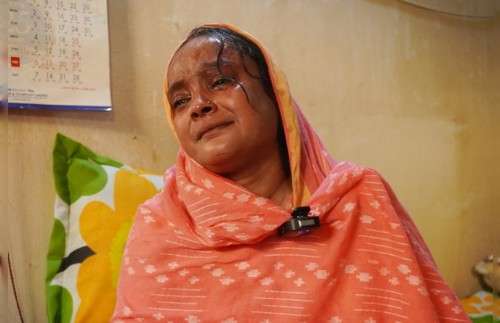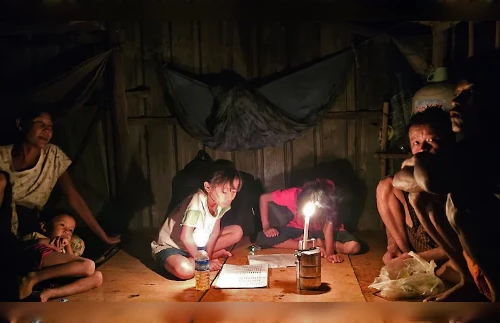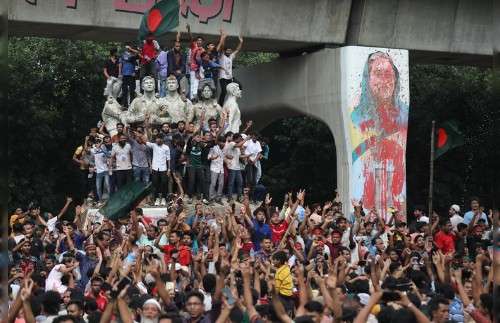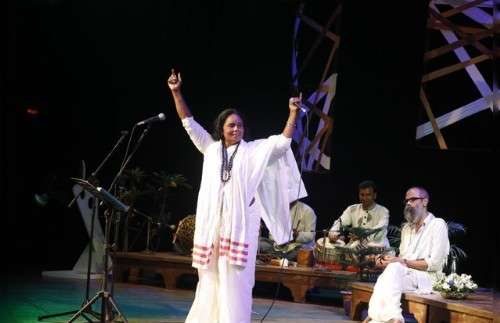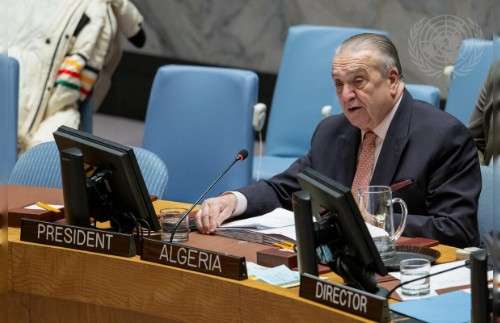Nontarat Phaicharoen and Kunnawut Boonreak/Bangkok and Chiang Mai, Thailand

Sparring between Thailand’s two main pro-democracy parties may undermine their common goal of defeating the military-inclined ruling establishment in the May 14 general election, analysts said.
The bickering between the progressive Pheu Thai and the Move Forward Party has increased in recent weeks, especially as the latter’s leader appears to be gaining support according to recent surveys, although Pheu Thai is still trending ahead.
“The popularity of the Move Forward Party is rising in many constituencies,” said a recent message from a Pheu Thai election outreach office, to its MP candidates.
“Unless you work harder and reach out to the people more, we won’t achieve the goal of a landslide win.”
The message reflects Pheu Thai’s fear that Move Forward is more popular among people aged 26 to 43.
According to results of a survey released Wednesday, Pita Limjaroenrat, chief of the Move Forward Party, leads the pack of potential prime ministerial candidates, with 35.44% of support, followed by Pheu Thai’s candidate, Paetongtarn Shinawatra, at 29.20%.
The Pheu Thai Party holds the edge with 38.32% support versus Move Forward’s 33.96%, showed the survey by the National Institute of Development Administration (NIDA).
For decades, Pheu Thai has won the most votes of any party competing in Thai elections, reflecting its popularity in rural areas and in the country’s northeast. Now, it is dubbing the Move Forward Party immature, and the newcomer is not taking it lying down.
“When Move Forward issued the statement about good politics, good livelihood and good future, they said it is a day dream, it would never happen in Thailand,” Piyabutr Saengkanokkul, a campaigner for the party, told supporters at an April 22 event.
“When politicians like ours offer honest outlines, they say we are naïve,” he said, apparently referring to Pheu Thai.
Pheu Thai hit back a few days later.
“People want a political party that is mature, able to work collaboratively with others, is practical and can get the job done,” Pheu Thai Party’s deputy leader. Poomtham Vejjayachai, tweeted.
“They are just dreamers and will fail to achieve their goal.”
Drawing such battle lines could hurt both the parties, said Thouchanok Sattayavinit, a lecturer at Burapha University.
“For constituency MPs, there is a chance they both lose. We have seen big parties losing out to smaller parties in the individual run-up,” Thouchanok told BenarNews.
That means if Pheu Thai and Move Forward voters are split, a third candidate may win, because the candidate who wins the highest number of votes wins the constituency.

Cross-bloc handshake?
Meanwhile, pro-military parties – which are currently part of the ruling coalition – are also bickering with each other.
Prime Minister Prayuth Chan-o-cha has been criticized for his economic policies by people within his own government, although some of the critics belong to parties that will be contesting separately from the PM in the upcoming election.
One of Prayuth’s ministers, who is deputy leader for the Palang Pracharath Party (PPP), blamed the PM for the high cost of consumer energy.
“Fuel, cooking gas and electricity are ridiculously expensive. These are the main problems we have to troubleshoot quickly,” Chaiwut Thanakamanusorn, the minister for digital economy and society, told reporters in April.
His remark angered Prayuth.
“It’s not appropriate to attack me like that. He was in the government for four years and it is not right to dump everything on me,” Prayuth told reporters in mid-April.
“These are collective results, good or bad.”
Prayuth quit the PPP to form a new party, the United Thai Nation Party, which is competing against PPP in the upcoming polls. Prayuth’s deputy and fellow retired Army general, Prawit Wongsuwan, is viewed as the PPP candidate for prime minister.
Separately, Suphachai Jaismut, a veteran Bhumjaithai Party politician, also criticized Prayuth on the economy. Bhumjaithai Party’s leader Anutin Charnvirakul, a potential PM candidate, is the public health minister.
“[He] was elected the last time because people wanted peace, but today we have peace already but no money,” Suphachai said in February, referring to Prayuth.
“What we don’t have yet is money in the wallet.”
Prayuth is the most popular prime ministerial candidate among the ruling coalition politicians. Nearly 15% of those surveyed support him, with his UNP registering 12.08% popularity on the NIDA poll.

Despite a stark ideological divide between the progressive and pro-military parties, some analysts don’t rule out a cross-bloc handshake.
“Move Forward has the most conditions – no Prayuth, no Prawit – perhaps it is ready to be in the opposition,” Nuttakorn Vititanon, a political scientist at Chiang Mai University, told BenarNews.
“So if Move Forward wants to be the ruling party, it has to gain as many seats as possible. That means intensified attacking within the same ideological bloc, which worries Pheu Thai. In many constituencies, especially in the urban, voters choose a party over an individual.”
That puts Move Forward at a disadvantage, said Burapha University’s Thouchanok.
“I believe if the UNP and the PPP join hands again, Move Forward will be in the opposition because it is the only party to have announced it will stay away from the pro-military bloc,” Thouchanok said.
“It’s hard to predict who Pheu Thai will join with as it is mercurial and we can assume that it does not want to be in the opposition again.”
At least 376 seats are needed to secure a parliamentary majority when both houses elect the new head of government from the list of the prime ministerial candidates.
After coming to power in a 2014 coup, and prior to the 2019 election, the junta led by now-Prime Minister Prayuth changed Thailand’s electoral system to let 250 senators appointed by the ruling party vote for the nation’s next prime minister.
Because the senators are expected to vote as a unit for someone from the ruling party, pro-democracy candidates likely could fail to reach the 376 count needed to hold the top elected office even if they won a majority of the lower house seats.
However, most parties appear to be confident they will win enough seats to form a government without depending on senators’ votes in electing the new prime minister, Chiang Mai University’s Nuttakorn said.
“From the many debates I’ve seen, all parties, even the coalition ones, have the same common ground, that is to mitigate the need for the Senate’s help when an MP is chosen in the parliament,” Nuttakorn said.
Copyright ©2015-2022, BenarNews. Used with the permission of BenarNews.





